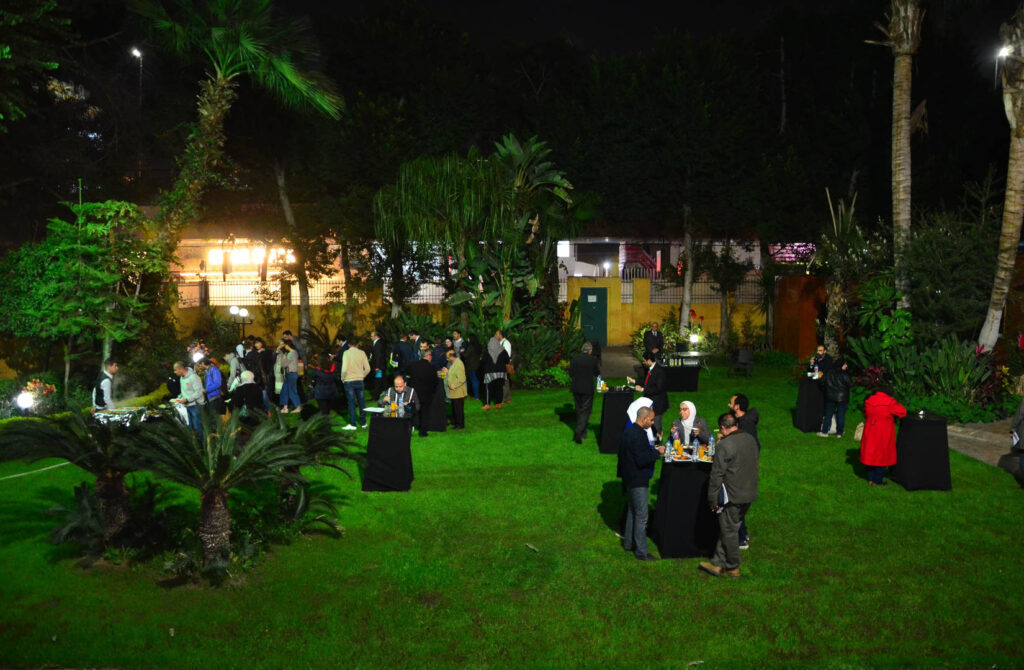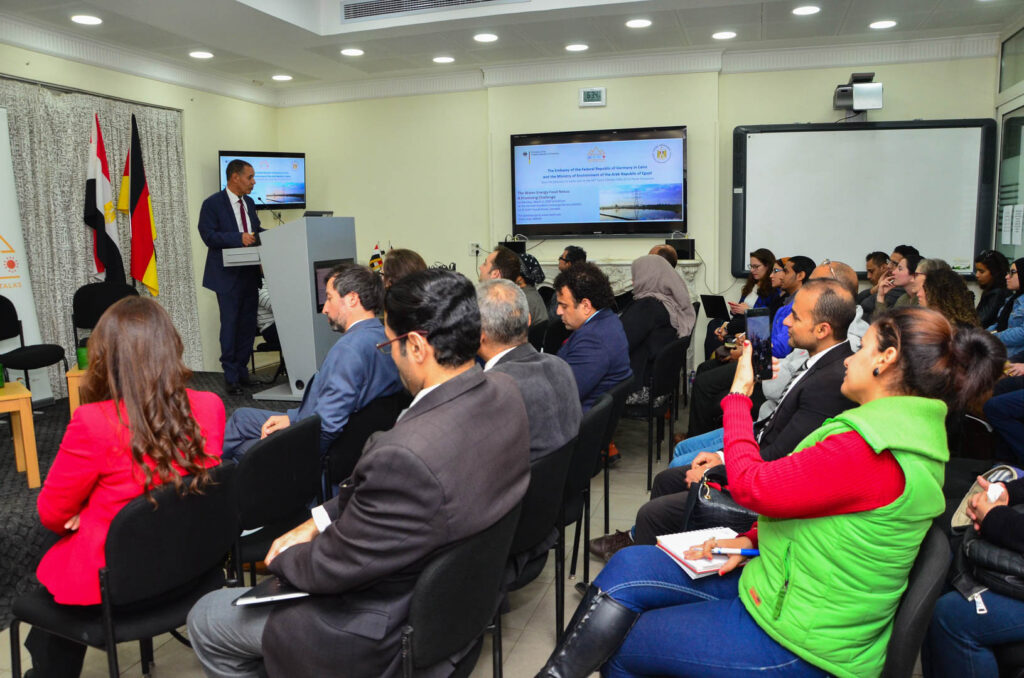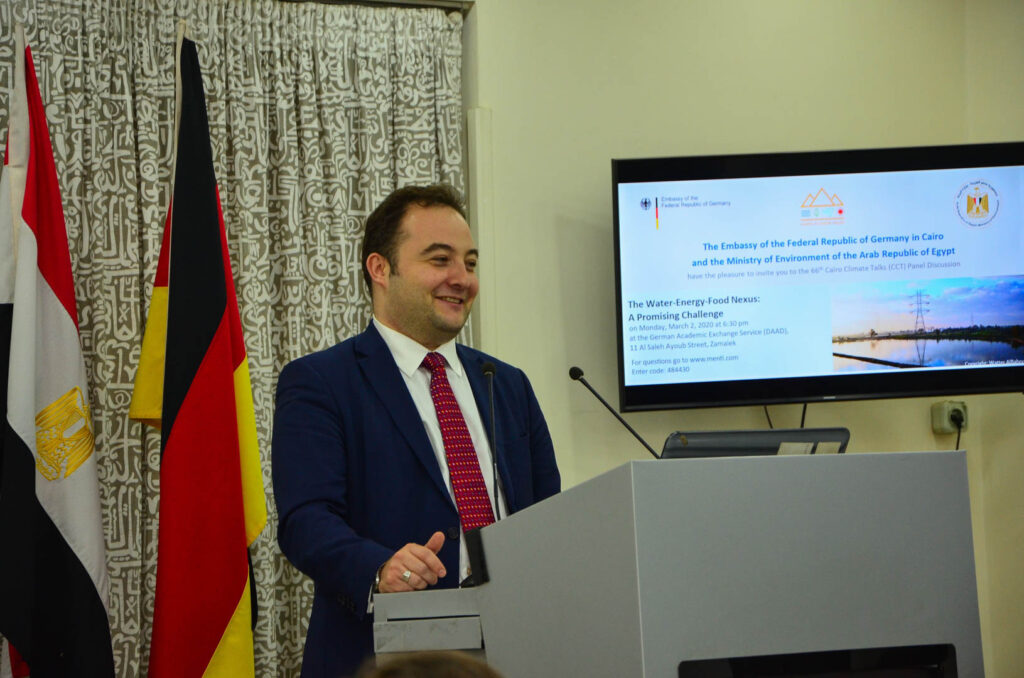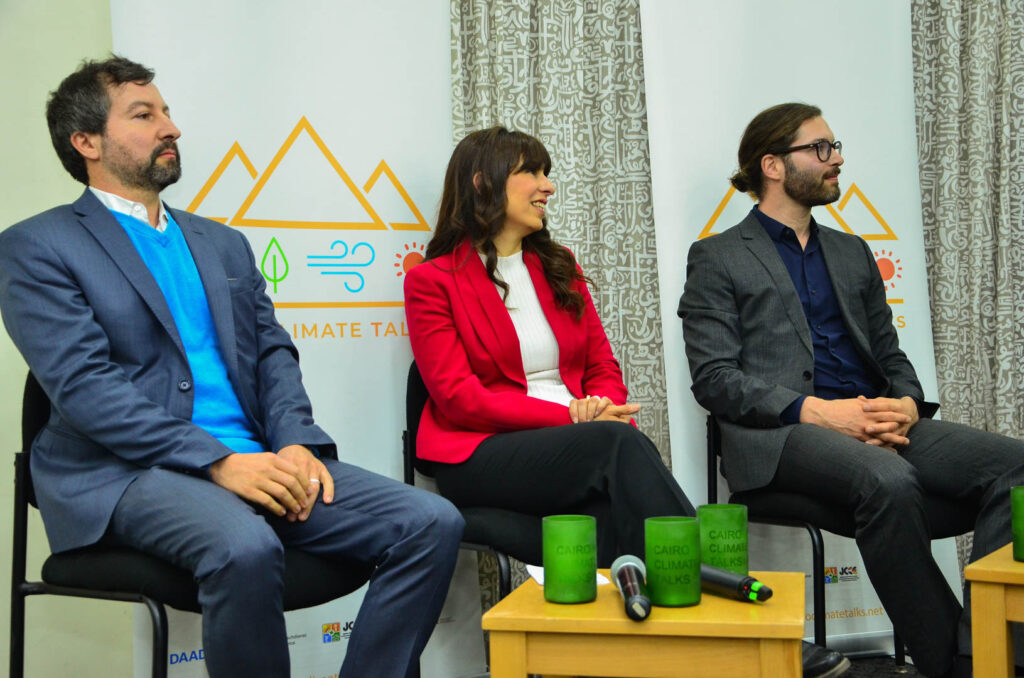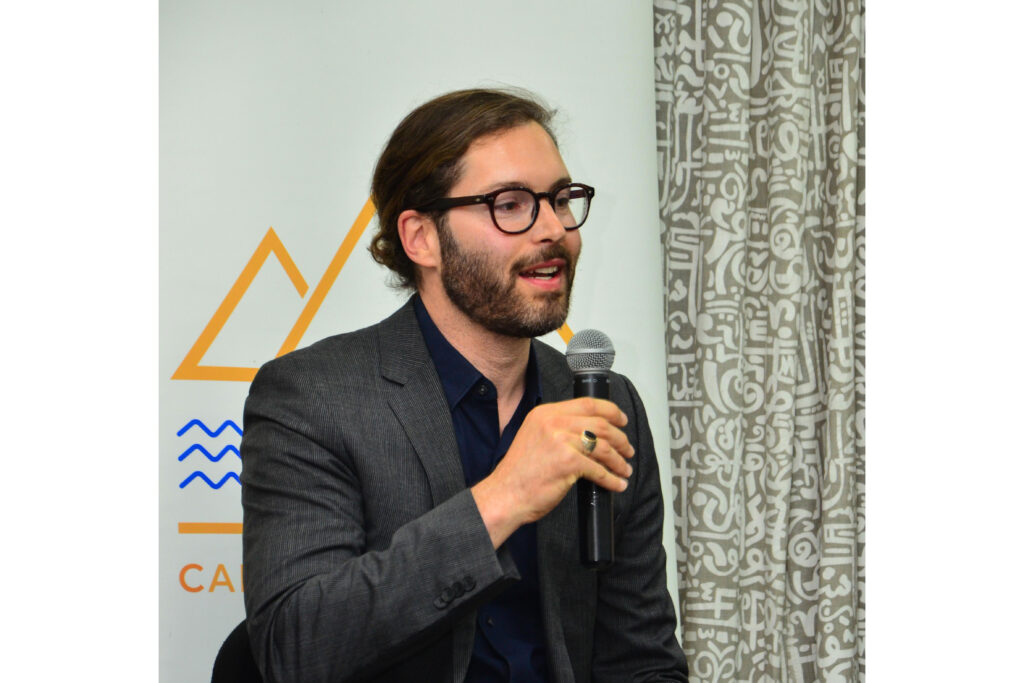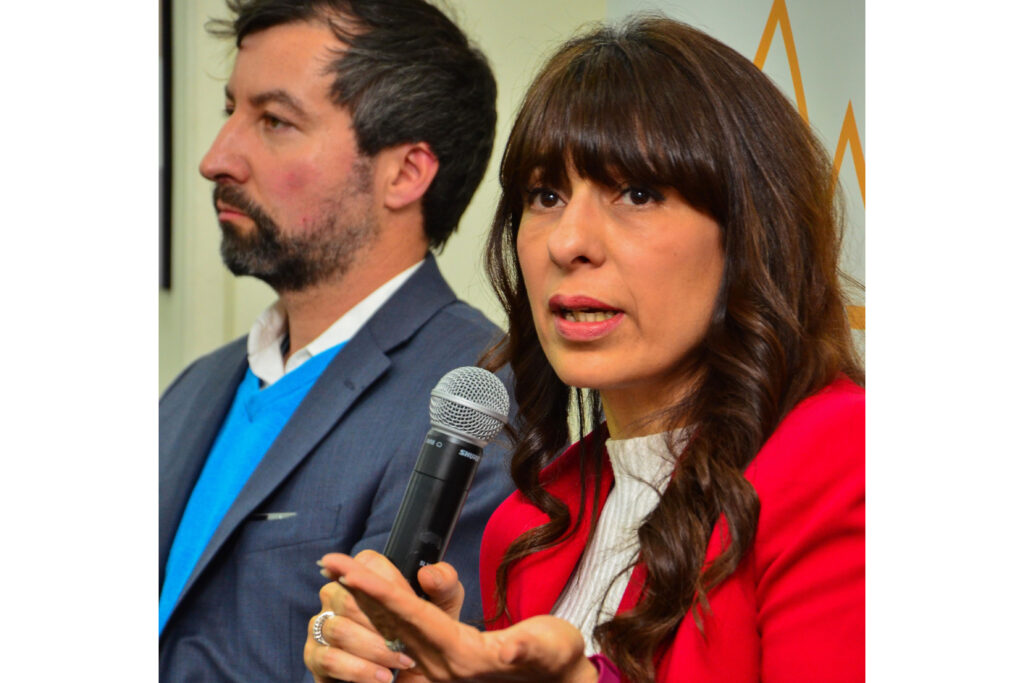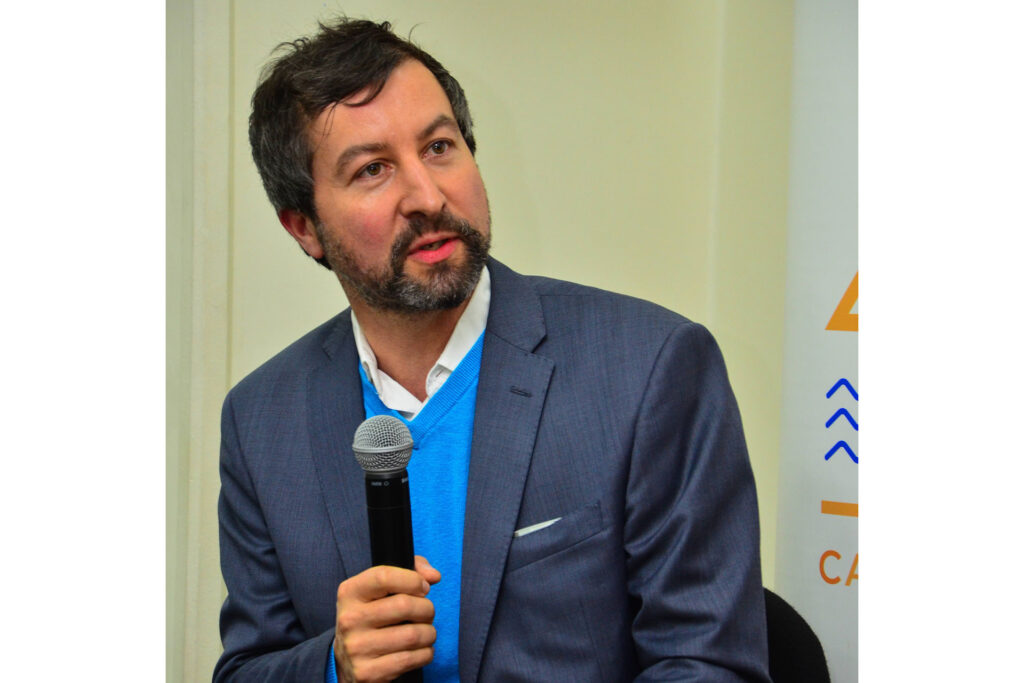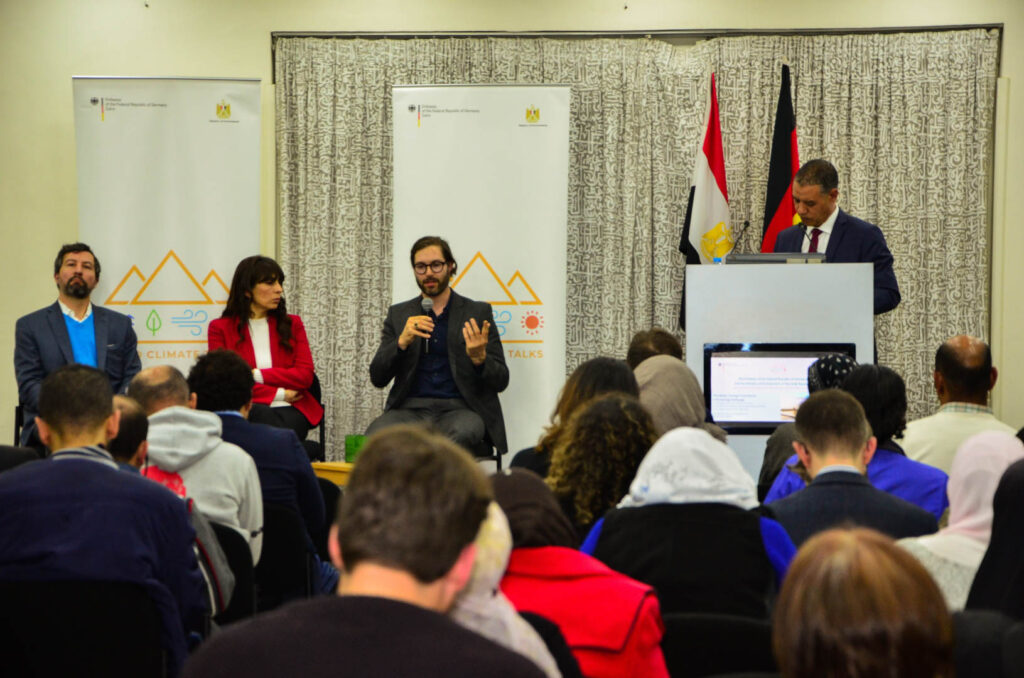The Water-Energy- Food Nexus: A Promising Challenge
2020
March 2nd
At The German Academic Exchange Service (DAAD)
On 2 March 2020, Cairo Climate Talks hosted its 66th panel discussion titled “The Water-Energy-Food Nexus: A Promising Challenge”. CCT brought together experts from different fields to discuss the potential of an inter-sectoral approach to help achieving the Sustainable Development Goals (SDGs) in Egypt.
In his opening words, the moderator of the panel Dr. Hammou Laamrani, Integrated Senior Expert at GIZ, highlighted how addressing the water, energy, and food sector jointly might at first seem counterintuitive as it further complicates the dialogue. However, the deep interdependency between each sector calls for an interdisciplinary and cross-sectoral approach. He stressed that efficient resource use, especially in times of increasing demand and decreased availability, is the only way forward for markets, individuals, and environmental protection.
Ms. Fatma Soliman, Deputy Director of the DAAD Cairo Office, emphasized the importance of exchanging knowledge and technological solutions to create multi-factorial approaches for the good of humanity. Mr. Philippe Maupai, Head of the Science Department at the German Embassy in Egypt, seconded the call for collaboration stating that “by creating a common concept for supplying and using water, energy and food resources, planners can create synergies and find fair compromises in cases of resource scarcity.”
Mr. Clemens Breisinger, Country Program Leader at the International Food Policy Research Institute (IFPRI) stressed that “the Nexus is not just an approach that is nice, but one that makes sense. Each sector has their own goals but each of the goals are connected with each other.” He called for increased incorporation of the nexus into policies and stressed on the positive solutions that such approaches offer. The nexus becomes a promising challenge, if it builds on transboundary and multi-institutional collaboration and can lead to improved development, increased efficiency, and a more stable supply of resources. He highlighted how single-sector policies create challenges in Egypt: Fuel and fertilizer subsidies could send wrong incentives to farmers and consumers resulting in a negative impact on the environment and resource availability; e.g. overuse of fertilizers lead to soil deterioration and contamination of groundwater resources; accessibility of cheap fuel leads to over pumping of water resources and increased pollution due to excessive use of diesel motors.
Laamrani suggested speaking of a plurality of nexuses, to express the nexus within policy, technology, and society. “Governments” he added “cannot do it alone, it is not just the stakeholders’ responsibility but of all those implementing projects to incorporate the nexus.” Prof. Dr. Boris Heinz, Head of Programme at Hudara gGmbH and Head of the Chair for Energy Systems at TU Berlin added that the nexus is necessary to map closer to reality and its incorporation in planning a necessity to increase resilience (the ability to recover from setbacks such as environmental disasters or crop failures). Especially in light of the current population growth, the stress on resources is ever increasing, leaving many people vulnerable to shocks such as weather extremes. In order to teach future generations to think within such nexus approach, Prof. Dr. Rasha Elkholy, Vice Dean of the Heliopolis University for Sustainable Development, introduced how all the university’s curricula incorporate social consciousness into technological training and all student’s projects have to align with the nexus.
The panellists highlighted that institutions and researchers should however continue to focus on specializing within their sector while incorporating experts from other sectors. Breisinger clarified “we need to be experts in our field but stay open and see what’s the innovation in other sectors.” To move forward, all panellists agreed, the nexus needs to be considered as a planning tool with the potential for triple-win scenarios for all sectors. To reach this, increased modelling reflecting the nexus needs to be conducted and the results included in the planning stage of projects to see its promising impact on reaching the SDGs. Laamrani closed the evening by highlighting that to best reach such a rethinking, existing structures don’t need to be reinvented, rather soft structures need to be implemented which strengthen synergies between institutions, communities, and policy makers.
Meet our Panelists
Prof. Dr. Rasha Elkholy
Vice President, Heliopolis University
Prof. Dr. Boris Heinz
Head of Programme at Hudara gGmbH / Head of the Chair for Energy Systems at TU Berlin
Mr. Clemens Breisinger
Country Program Leader at International Food Policy Research Institute (IFPRI)
Meet our Moderators
Dr. Hammou Laamrani
Senior Integrated Expert, GIZ
Are you interested? Don’t miss out by registering to our events. We hope to see you there.

